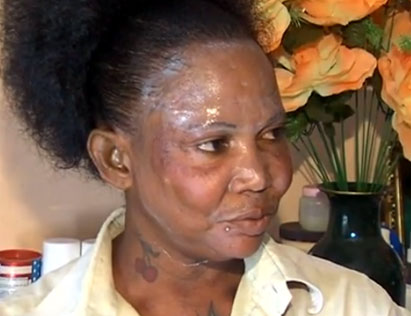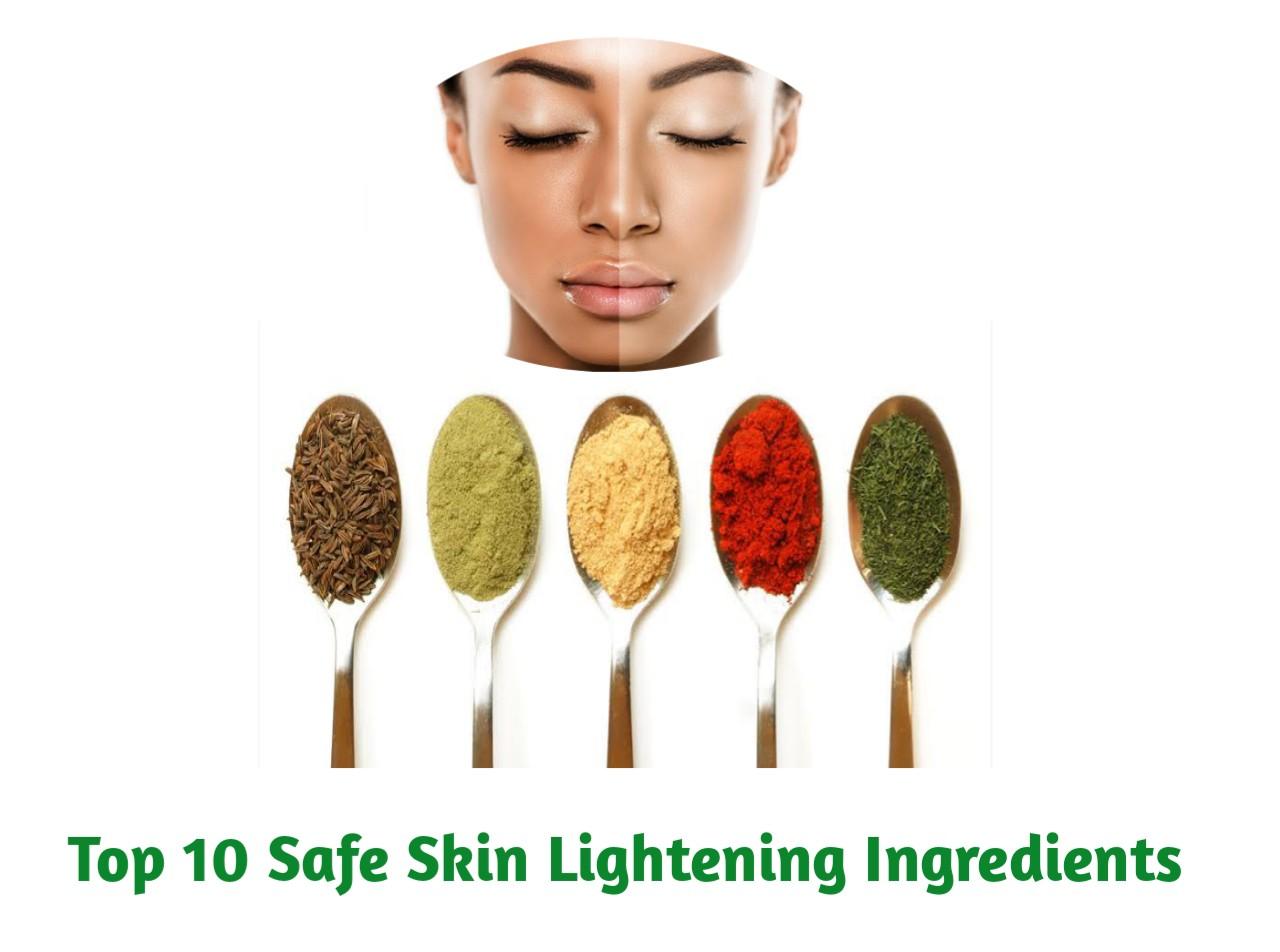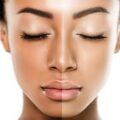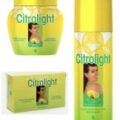Generally speaking, most people feel more confident with clear, even skin. For many, the battle with skin disease can be a real hurdle that must be overcome to achieve this goal. That’s why dermatologists prescribe skin lightening medications to treat various common cuteanous diseases that lead to unevenness or discoloration. “One of the most frequent reasons patients are prescribed skin bleaching medicines is to treat post inflammatory pigmentations that can happen to anyone.
Skin lightening or bleaching refers to the use of products to lighten dark areas of the skin or achieve an overall lighter complexion. These products include bleaching creams, soaps, and pills, as well as professional treatments like chemical peels and laser therapy.
There is no health benefit to skin lightening bleaching. Results aren’t guaranteed and there’s evidence that skin lightening can result in serious side effects and complications. From a medical standpoint, there’s no need to lighten the skin. But if you’re considering skin bleaching, it’s important to understand the risks especially if you are using unsafe products.
How skin bleaching works
Skin bleaching reduces the concentration or production of melanin in the skin. Melanin is a pigment produced by cells called melanocytes. The amount of melanin in your skin is mostly determined by genetics. People with dark skin have more melanin. Hormones, sunlight, and certain chemicals also affect melanin production.
When you apply a skin bleaching product to the skin, such as hydroquinone, it decreases the number of melanocytes in your skin. This can result in lighter skin and a more even appearance to the skin.
Skin bleaching side effects
A number of countries have banned the use of skin bleaching products because of the dangers associated with them. In 2006, the Food and Drug Administration (FDA) also issued a notice that over-the-counter (OTC) skin bleaching products are not recognized as safe and effective. The products were deemed not safe for human use based on a review of evidence. Skin bleaching has been associated with a number of adverse health effects.
Some skin bleaching creams made overseas have been linked to mercury toxicity. Mercury has been banned as an ingredient in skin lightening products in the United States, but products made in other countries still contain mercury.
In a 2014 study of 549 skin lightening creams bought online and in stores, nearly 12 percent contained mercury. About half of these products came from U.S. stores.
Signs and symptoms of mercury poisoning include:
- numbness
- high blood pressure
- fatigue
- sensitivity to light
- neurologic symptoms, such as tremor, memory loss, and irritability
- kidney failure

What Skin Lightening Ingredients are Safe to Use?
There are many safe skin lightening ingredients you can try they include;
- Kojic Acid
Usually made as a by-product of malted rice – that’s used to make sake/rice wine, Kojic acid is an all-natural lightening and brightening skincare active. Kojic acid works to lighten and brighten your skin by making an enzyme necessary for melanin production unavailable i.e. the pigment which colors your skin.
- Vitamin C
Vitamin C is a much loved, multi-tasking skincare ingredient. vitamin C, is a necessary skincare antioxidant. Since your skin naturally makes vitamin C it is therefore one of the safest skincare actives you could use.
- Alpha-arbutin
Another natural skin lightening active. Alpha-arbutin is made by Mother Nature and found in the leaves of the bearberry plant. Used in skincare at a 1 to 2% concentration, alpha-arbutin can rival even the most effective skin brighteners. Similarly, to Kojic acid, alpha-arbutin works by inhibiting skin’s tyrosinase enzymes.
- Niacinamide
Enter the world of skincare and you won’t travel far before hearing about the wondrous activity of niacinamide. Also known as pro-vitamin B3, niacinamide is an antioxidant, sebum (oil) balancer, acne fighter, anti-inflammatory, ceramide booster and… a very effective skin lightening active. Niacinamide works even more effectively when paired with N-acetyl glucosamine.
- Glutathione
A potent antioxidant that can even be taken as a food supplement. Glutathione makes a fantastic partner to well-studied skin lightening ingredients like Kojic acid. While studies show glutathione is safe for use on skin, not so much is known about how well or how quickly glutathione can lighten skin. For this reason, be sure your choice of lightening skincare includes glutathione accompanied by one of the other skin lightening ingredients on this list.
- Azelaic acid
Don’t let acid scare you, azelaic acid is the same pH level as your skin, 5.5pH which is also slightly acidic. Azelaic acid is most commonly known for its abilities to help calm rosacea – a chronic redness accompanied by irritation and scaling. However, azelaic acid is also an effective skin lightening ingredient. Used in skincare, azelaic acid will not only help even your skin tone, it will also help keep your skin clear.
- Glycolic acid
Most people know glycolic acid works as a leave on exfoliant, most people don’t know glycolic acid can also help lighten skin. While many of the ingredients on this list work to inhibit melanin synthesis, glycolic acid works to lighten skin by removing melanin pigment faster. Glycolic acid skincare speeds up the natural turn-over of your skin cells aka the rate at which they exfoliate. Uneven exfoliation can cause an uneven skin tone, therefore glycolic acid can powerfully boost the results of direct acting skin lighteners like Kojic acid.
- Linoleic acid
While you might not have heard about linoleic acid, you’ll have surely heard about natural plant oils which contain linoleic acid – rosehip oil, grapeseed oil and evening primrose oil. Linoleic acid can help speed up your skin cell turnover in the same way as glycolic acid with recent studies suggesting linoleic acid can also directly suppress melanin production. Another natural skincare active with noteworthy lightening and brightening abilities.
- Paper Mulberry
Mulberry extract is an up and coming skin lightening active. Sources boast mulberry extract may even have better efficacy than the very controversial Hydroquinone. Named a superoxide scavenger, paper mulberry extract can also help protect skin against damaging free radicals i.e. pollution induced age spots.
- Liquorice extract
As a mixture of actives, liquorice extract contains many ingredients with skin-lightening benefits. Some of these work traditionally by inhibiting tyrosinase activity whereas others also lighten skin but by other mechanisms. This make liquorice extract an attractive and very effective skincare ingredient for lightening and brightening. SEE: Does Fair and White Gold 2 Bleach?





